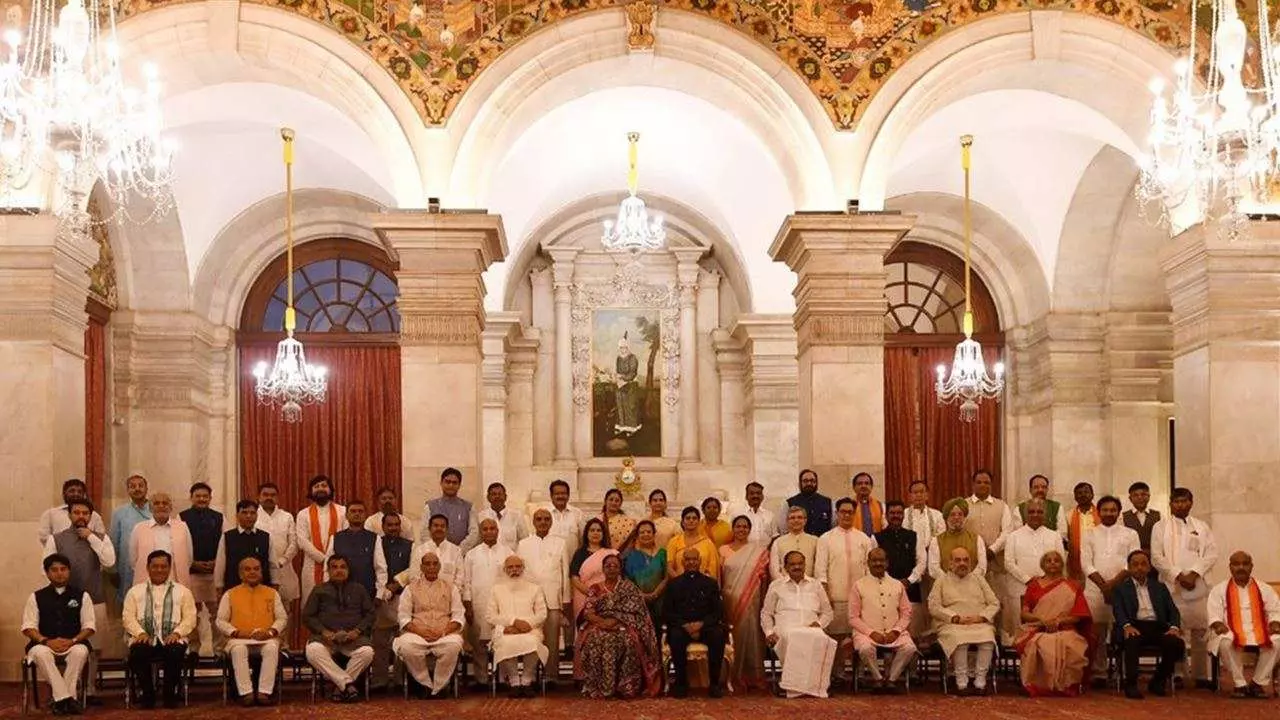
Change needed not of faces but of principles
text_fieldsAs part of his attempts for image makeover following the loss of reputation within and outside the country, the Prime Minister has put the cabinet through a mega reshuffling process. Seven cabinet ministers and five Ministers of State (MoS) were ousted and 36 new faces inducted. Of those who lost their ministries, the most prominent is Dr Harsh Vardhan who was slammed for failure in handling the second wave of the pandemic even by his very own supporters. The other is Ravi Shankar Prasad who led the enactment of several controversial laws which were lambasted by courts and international agencies alike. The criticisms of the apex court ousted Labour Minister Santosh Kumar Gangwar. Rather unexpectedly, Prakash Javdekar, who waters down environmental and forest laws for the benefit of the government's close corporate friends and approves projects destructive for the environment, also resigned. Still, it is a mystery how, despite his arraying of justifications on tv channels and social media for crushing popular protests about takeover of land and forests, he got out of the good books of the prime minister.
Apparently, it is after a month of contemplation and political calculation that Modi and Shah implemented the reshuffle. Most political analysts and experts opine that the reshuffle is a clever move put forth ahead of the 2022 assembly elections and 2024 Lok Sabha election. There are 14 ministers now from Uttar Pradesh. UP is gearing up for the assembly elections scheduled to be held in 2022. Bengal, Gujarat and North-eastern states were also well-considered for gains in state elections. In order to acquire caste vote banks, the representation of women and different caste and communities was ensured. Thus Apna Dal's Anupriya Patel and Lok Jana Shakthi leader Pashupathy Kumar Paras secured positions in the council of ministers. With the induction of Jyotiraditya Scindia, Narayan Rane, Sarbananda Sonowal, Pashupathy Kumar Paras and Narayan Swamy, the BJP will be able to placate those who have jumped ship from opposition political parties and also minimise in-party conflicts and disagreements to a certain extent. In addition to all this, the PM has also honoured and rewarded the hate-mongers within the party with positions in the council. The posts given to hate-spewing Shobha Karanthlaje, Shantanu Thakur and Anurag Thakur who is alleged for leading the Delhi racial attacks, is sure to please and motivate Hindutva proponents. However, for all this the public treasury shall have to pay to foot the bill of the 77-member jumbo government.
But the cardinal question is: is the change of portfolio of 23 ministers and the inclusion of some new faces enough to save the government's face and climb up from the abyss of disasters they had led the country to? It is not simply a lack of governing skill of the cabinet that has led to its loss of face and a spread of discontent, but rather their mentality and thrusting of unfavourable policies upon the people. Replacing Harsh Vardhan with another will not solve the COVID crisis. The government has to decide that it will not pretend to believe that all is well even when people are consigned to death and dead bodies float on the river Ganga. The Indian economy, which had started declining well before the pandemic, has now collapsed. Nirmala Sitharaman, who is behind the anti-people policies that led to this collapse, and ought to be held accountable, still remains the finance minister. Neither Rajnath Singh who could not solve the conflict with China, nor Narendra Singh Tomar who could not resolve the farmer's crises has suffered any losses in the cabinet reshuffle. In all honesty, those ousted had little role in the failures of the Modi government's lop-sided priorities and grave lapses in it governance. The crucial decisions impacting the country in the face of huge crises were all made by a small group including the Prime Minister.
If it really wishes to make good its loss of reputation, changes must start from the Prime Minister's Office and the excess concentration of power within the office. It should involve the scrapping and reconstruction of anti-people policies which caused large-scale protests countrywide. Rather than in the faces, there is a need for change in the guiding principles and priorities of the ministry. However, no one even expects that to be realised.























